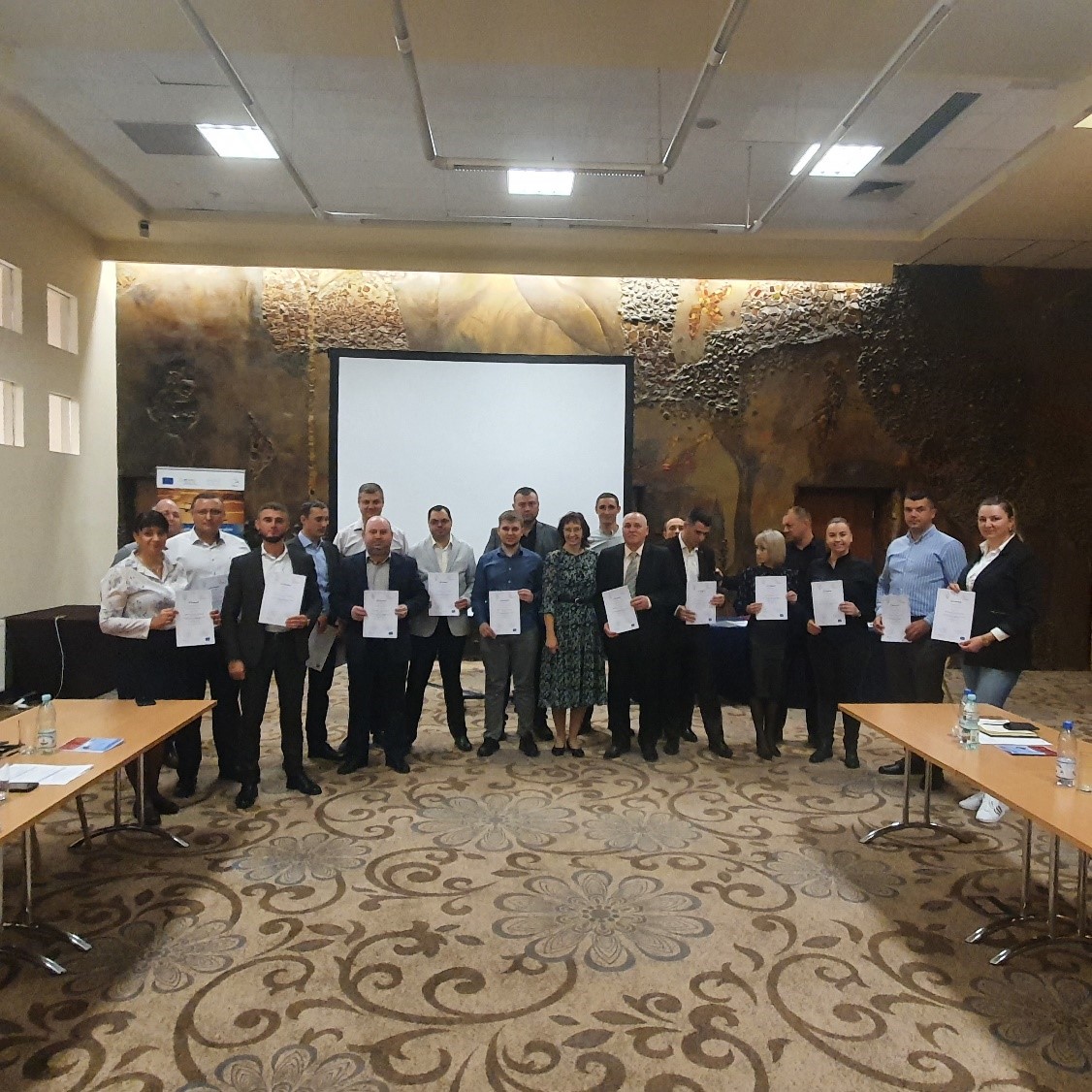The MPF project entitled "Strengthening of the Migration Management System in the Republic of Moldova" - implemented by the European Project Implementation Centre of the Ministry of the Interior and Administration in Poland (EPIC MoIA) in cooperation with the General Inspectorate of Border Police of the Ministry of Internal Affairs of the Republic of Moldova (GIBP) - seeks to strengthen Moldovan border management and migration services in line with EU standards and best practices.
The project is closely aligned with one of the key principles of the European Agenda on Migration: working in partnership with third countries to tackle and prevent irregular migration. This objective is to be achieved by strengthening Moldova's migration management system, making it more proximate to EU standards.
In this article, we speak to Tatiana Ciumas from the Bureau of Migration and Asylum of the Ministry of Internal Affairs of Moldova. With her 18 years of migration management experience and after participating in a series of workshops under the MPF project, Tatiana will become a trainer. The MPF team had the opportunity to meet with her while participating in a workshop on "International protection of foreigners", which took place in Warsaw (Poland) at the beginning of October of this year.
MPF: Tatiana, can you tell us which workshops run by the project you have participated in?
Tatiana Ciumas: Thus far, I have participated in three workshops: one on migration management with particular emphasis on return, another on social and cultural identification of foreigners and intercultural communication and a third on international protection of foreigners.
MPF: What were your motivations for registering for such workshops?
Tatiana Ciumas: My supervisor encouraged me, and my current employer is also very well aware of my high interest in advancing my knowledge base in migration management. More broadly, I am keen to learn more about good practices implemented by other countries that our institutions in Moldova could replicate. Aside from that, I am also a researcher and am interested in identifying appropriate solutions for Moldova in the future, especially since the migration management field continues to change and evolve. I believe Moldova should be very well prepared to navigate migration flows.
MPF: Tatiana, from your perspective, what is the added value of the different workshops?
Tatiana Ciumas: The entire curriculum covers all the aspects related to migration, from regular migration to irregular migration, the asylum aspect, and the risks from both perspectives, for authorities responsible for migration management and border management. Those two aspects are essential and complementary to each other and allow for a better understanding of the process as a whole.
In addition, the training provides a human lens and offers a perspective of the migrant as a person with a cultural background, with rights and obligations in the receiving country. The course also forays into the possible scenarios, i.e., the key criteria that determine whether the migrant can reside in the receiving country or not, as well as integration and return scenarios.
MPF: What have you learned from the training courses, and have they met your expectations?
Tatiana Ciumas: Yes! First of all, the project has an accommodating, friendly, and open-minded team. I have learned a lot. Thanks to the various workshops, I can now broadly compare the current legal framework for migration management in Moldova with the Polish framework and with other EU Members States. The Republic of Moldova needs to share its experience, especially in light of the current national program developed by the Ministry of Interior Affairs of Moldova, which includes a chapter on migration management. The course content has inspired the topical migration management priorities to be included in the national program strategic document.
MPF: How has the knowledge gained through the training affected your daily work?
Tatiana Ciumas: This project came at the perfect time for Moldova. It started in August 2021, and a few months later, in February 2022, the crisis in Ukraine occurred. The two workshops on return and cultural orientation took place at the project's beginning, before the Ukraine crisis. During the two workshops, participants learned how to interact with foreigners, especially those from the Maghreb and Vietnam, among other nationalities. The Republic of Moldova is less acquainted with those types of migrant profiles, and when the conflict started in Ukraine, Moldova started receiving many foreigners, including migrants from those countries of origin. Due to the knowledge gained, it was easier to communicate with incoming migrants. Moreover, colleagues from the full spectrum of authorities responsible for migration and border management were better prepared to deal with asylum applications.
MPF: Do you think you will stay in touch with fellow peers that participated in the training and are you envisaging any follow-up?
Tatiana Ciumas: Yes, for sure. We are continuously in touch with border guard colleagues. We established new networks, especially when you consider the profile of participants trained under the project; you notice that they hail from the whole country, not only from the capital. So new connections have been forged with colleagues from North, South and Central Moldova.
It is also very pertinent to learn about the experience of different EU Member States, from Poland to Latvia. Through the networking facilitated by the training, we have initiated a follow-up meeting with Latvia to discuss their experiences and best practices in the area of return. Moreover, the workshop with Polish experts provided an opportunity to discuss the possibility of implementing a future migration management-related project together.
For more information on the project, please click here.

